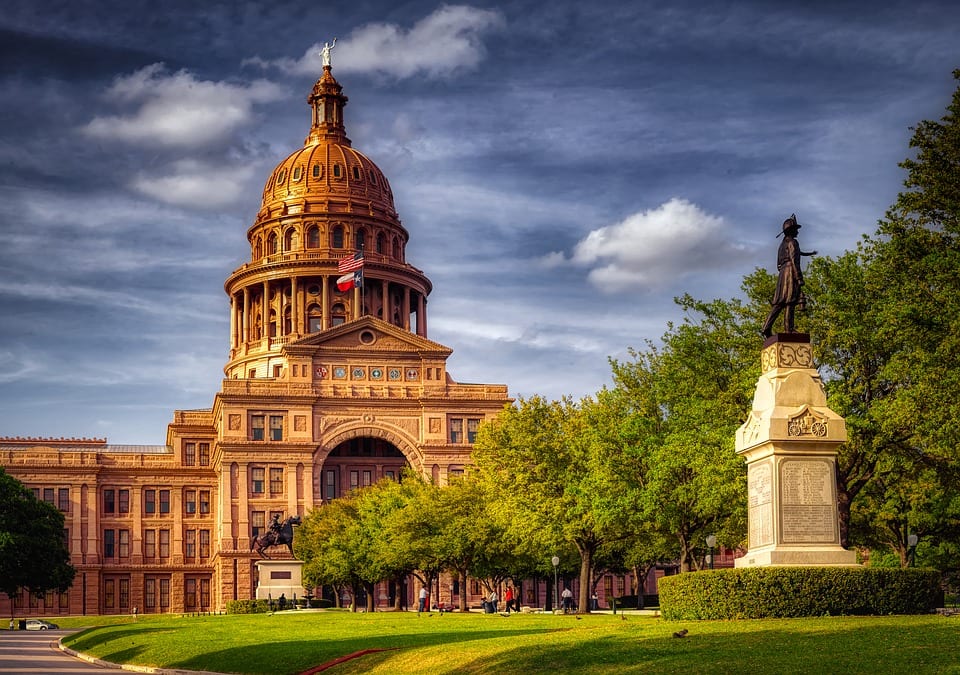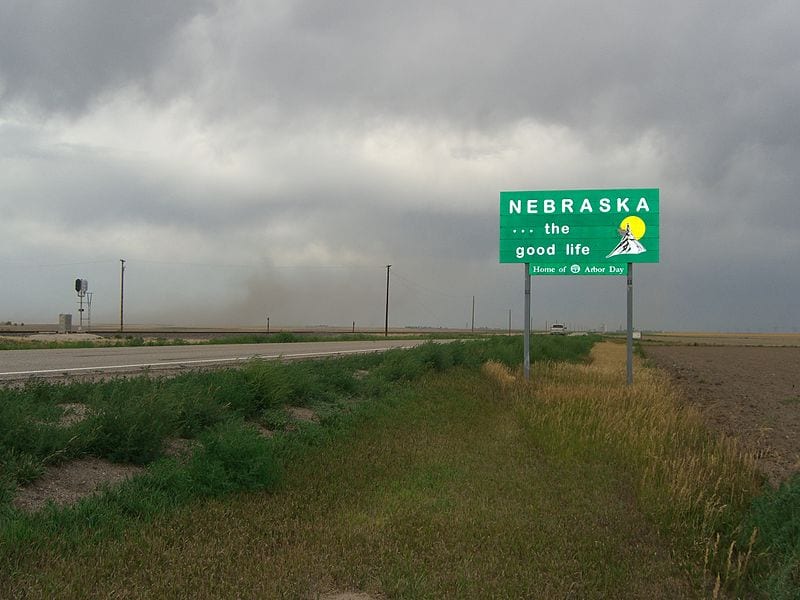According to Texas Bankruptcy laws, you can keep 1 house, 1 car, 1k use limit in bank account, a bible or other religious text, and 2 guns.
A city in Virginia passed…
A city in Virginia passed an ordinance earlier this year barring people older than 14 from trick-or-treating. If the law is enforced, anyone older could be guilty of a misdemeanor and fined $250.
There is a law in Sweden that allows…
There is a law in Sweden that allows you go on any property you please between July and October so long as you are picking wild berries or mushrooms.
Fireworks are totally illegal…
Fireworks are totally illegal in Florida, but are sold to ordinary people in huge quantities via hundreds of stores across the state to anyone who signs a waiver saying they’re for agricultural use to scare birds away from crops.
10+ People Admit How They Bribed Cops to Get out of Trouble
When you get pulled over by the police, you usually just hang your head and go along with the program, right?
But these 13 people DID NOT like the idea of getting a ticket. So they took matters into their own hands and just straight up bribed a cop. And yes, bribing is extremely illegal and can lead to even more trouble.
Read on to see what actually went down…
1. I bet it didn’t work?

Photo Credit: Whisper
2. Ummm…. what did you do?

Photo Credit: Whisper
3. Make a run for the border!

Photo Credit: Whisper
4. Damn. That would be hard to pass up…

Photo Credit: Whisper
5. But… did you fuck him?

Photo Credit: Whisper
6. Hey, as long as it worked out in the end…

Photo Credit: Whisper
7. Okay, this isn’t exactly bribery…

Photo Credit: Whisper
8. For life? You’re going to work at the sex shop FOR LIFE? Hahaha… yeah…

Photo Credit: Whisper
9. Well, that wasn’t a soul crushing night or anything…

Photo Credit: Whisper
10. Yeah, sure you did…

Photo Credit: Whisper
11. Trashy is as trashy does…

Photo Credit: Whisper
12. Okay, that’s actually funny. But I doubt this works.

Photo Credit: Whisper
13. Cops like to get high too…

Photo Credit: Whisper
If you haven’t lost faith in law enforcement before, did this hurt your perceptions?
The post 10+ People Admit How They Bribed Cops to Get out of Trouble appeared first on UberFacts.
Texas still has a mutual combat…
Texas still has a mutual combat law. This means that duelling is still legal according the Texas penal code. The law states that any two individuals who feel the need to fight can agree to mutual combat through a signed, verbal or implied communication and have at it (fists only, however).
Washington May Become First State to Legalize “Human Composting”
It’s an age-old question that you’ve most likely thought about at one time or another: what will happen to your body after you die? Do you want to be buried in a cemetery? Cremated and spread into the ocean?

Photo Credit: Max Pixel
In what would be a historic move, it looks like Washington may be the first state to offer ‘human composting’ as an option after residents pass away. The method transforms human remains into soil, takes four to seven weeks to complete, and results in roughly a cubic yard of…well, compost.
Washington’s state legislature already passed a bill allowing human composting, and now it’s up to Governor Jay Inslee to sign the bill into law. If he does, the law will take effect in May 2020.
Here’s how it works: bodies are placed into large, cylindrical tubes filled with wood chips, alfalfa, and straw. A controlled amount of oxygen helps to speed up the decomposition, and after 4-7 weeks the transformation is complete. Family and friends can keep the soil in urns or do whatever they see fit with the remains.
Back to Earth: Washington set to allow 'human composting': https://www.kspr.com/content/news/Back-to-Earth-Washington-set-to-allow-human-composting-508906941.html
Posted by KSPR News on Monday, April 22, 2019
The process has been called an eco-friendly alternative to traditional burial and cremation, which releases 600 million pounds of carbon dioxide into the atmosphere every year.
It will be interesting to see what states follow Washington’s lead if the bill is signed into law.
Do you have thoughts on this matter? Share them in the comments below!
The post Washington May Become First State to Legalize “Human Composting” appeared first on UberFacts.
15 States Where It’s Actually Legal to Fire Someone Just for Being LGBTQ
Believe it or not, there are still places in the United States – in 2019! – where there are no protections in place keeping gay people from being fired from their jobs for simply being who they are.
These 15 states below offer no protection at all for LGBT people from being terminated from employment.
All of the statistics below come from the Movement Advancement Project.
1. Texas

Photo Credit: Pixabay
Estimated number of LGBTQ adults living in Texas: 873,454
2. Arkansas

Photo Credit: Wikimedia Commons
Estimated number of LGBTQ adults living in Arkansas: 76,251
3. North Carolina

Photo Credit: Wikimedia Commons
Estimated number of LGBTQ adults living in North Carolina: 323,319
4. South Dakota

Photo Credit: Wikimedia Commons
Estimated number of LGBTQ adults living in South Dakota: 19,939
5. Wyoming

Photo Credit: GoodFreePhotos
Estimated number of LGBTQ adults living in Wyoming: 14,618
6. Mississippi

Photo Credit: Wikimedia Commons
Estimated number of LGBTQ adults living in Mississippi: 79,814
7. North Dakota

Photo Credit: Wikimedia Commons
Estimated number of LGBTQ adults living in North Dakota: 15,697
8. West Virginia

Photo Credit: Wikimedia Commons
Estimated number of LGBTQ adults living in West Virginia: 57,667
9. Virginia

Photo Credit: Wikimedia Commons
Estimated number of LGBTQ adults living in Virginia: 259,268
10. Missouri

Photo Credit: Wikimedia Commons
Estimated number of LGBTQ adults living in Missouri: 180,486
11. Kansas

Photo Credit: Wikimedia Commons
Estimated number of LGBTQ adults living in Kansas: 72,783
12. Louisiana

Photo Credit: Wikimedia Commons
Estimated number of LGBTQ adults living in Louisiana: 138,998
13. South Carolina

Photo Credit: Pixabay
Estimated number of LGBTQ adults living in South Carolina: 139,236
14. Nebraska

Photo Credit: Wikimedia Commons
Estimated number of LGBTQ adults living in Nebraska: 55,192
15. Oklahoma

Photo Credit: Wikipedia
Estimated number of LGBTQ adults living in Oklahoma: 113,491
Here is a complete list of local non-discrimination ordinances across the U.S.
The post 15 States Where It’s Actually Legal to Fire Someone Just for Being LGBTQ appeared first on UberFacts.
Big Apple Goes Green: New York State Just Banned Plastic Bags
Consumers have had the option of getting their groceries in resuable grocery bags for some time now, but sadly, plastic bags still reign supreme. A lot of folks are just forgetful, and buy the reusable bags but keep forgetting to bring them along when they go out.
Residents of New York state may not be able to use that excuse for long, however: New York State is officially banning plastic bags, and some counties will impose a fee on paper bags too.
New York is the second U.S. state to ban plastic bags after California.
Photo Credit: iStock
Governor Andrew Cuomo first proposed the plan last year, and it goes into effect in March 2020. Goodbye, single-use plastic bags! Mostly, anyway. Some types of plastic bags – like newspaper bags or trash bags – will be exempted from the ban.
Instead, customers will have to use either paper bags or reusable bags. Individual counties can opt into a 5-cent fee on paper bags, though it’s not a mandatory part of the new law. The idea, it seems, is to encourage people to use reusable bags as much as possible, rather than paper or plastic.
Photo Credit: iStock
Environmentally speaking, this new law definitely marks progress. Plastic bags are basically the bane of the planet’s existence. They’re hugely wasteful, non-biodegradable, harmful to wildlife, environmentally costly to produce…the list goes on and on.
“These bags have blighted our environment and clogged our waterways,” Governor Cuomo said in a statement. He said the new plan will be a way to “protect our natural resources for future generations of New Yorkers.”
And the rest of us benefit, too.
The post Big Apple Goes Green: New York State Just Banned Plastic Bags appeared first on UberFacts.
Ancient Rome had no concept…
Ancient Rome had no concept of a limited-liability corporation, so entrepreneurs got around it by appointing a slave as the CEO. A master was not legally liable for a slave’s debts, so this allowed the owner to control the company while avoiding personal liability in case of bankruptcy.


